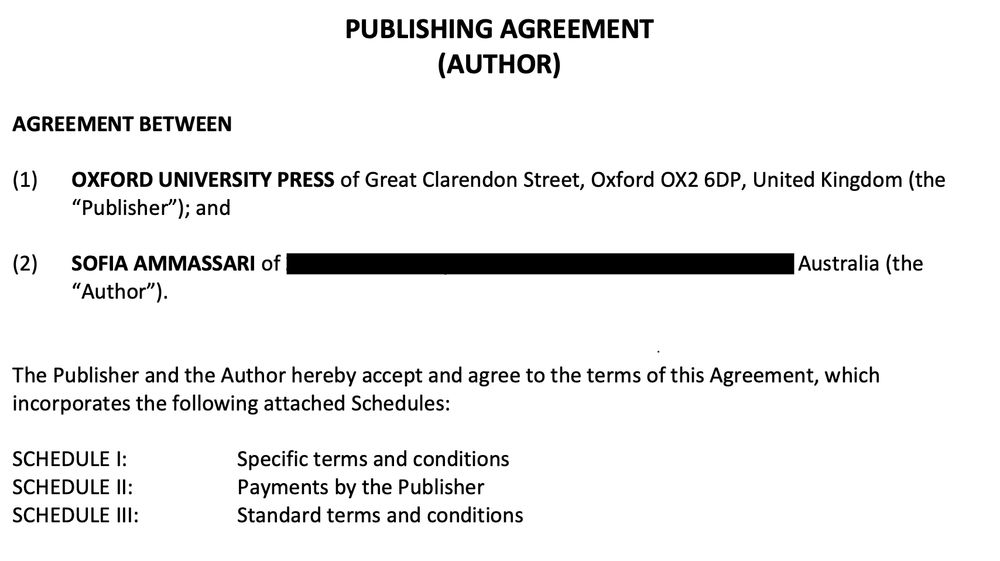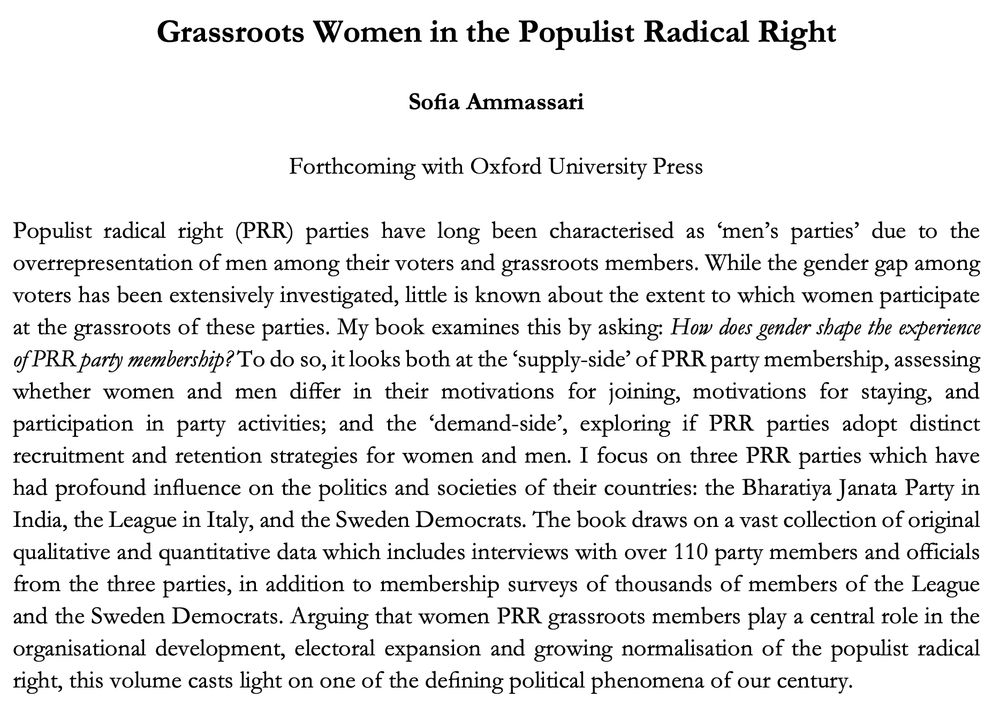Sofia Ammassari
@ammassarisofia.bsky.social
2.1K followers
1K following
250 posts
Research Fellow at Griffith University 🇦🇺
populist radical right • political parties • women’s and youth political participation
sofiaammassari.com
Posts
Media
Videos
Starter Packs
Pinned
Reposted by Sofia Ammassari
Reposted by Sofia Ammassari
Reposted by Sofia Ammassari
Reposted by Sofia Ammassari
Reposted by Sofia Ammassari
Reposted by Sofia Ammassari
Reposted by Sofia Ammassari
Reposted by Sofia Ammassari
Reposted by Sofia Ammassari
Reposted by Sofia Ammassari
Duncan McDonnell
@duncanmcdonnell.com
· Sep 1

Postdoctoral Research Fellow, Grade 1
Company Description: Every institution values excellence. What matters most is why.
Griffith was created to be a different type of university. You’ll find we’re about leading research, academic excel...
jobs.smartrecruiters.com























